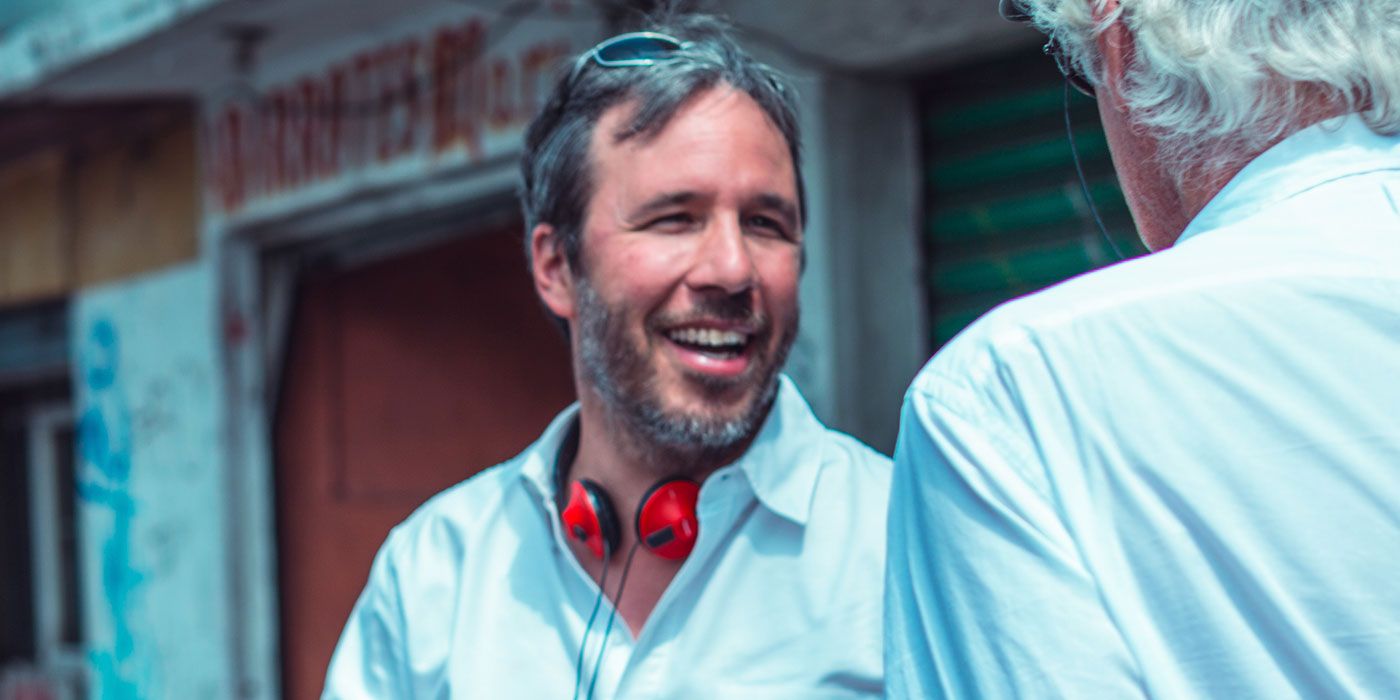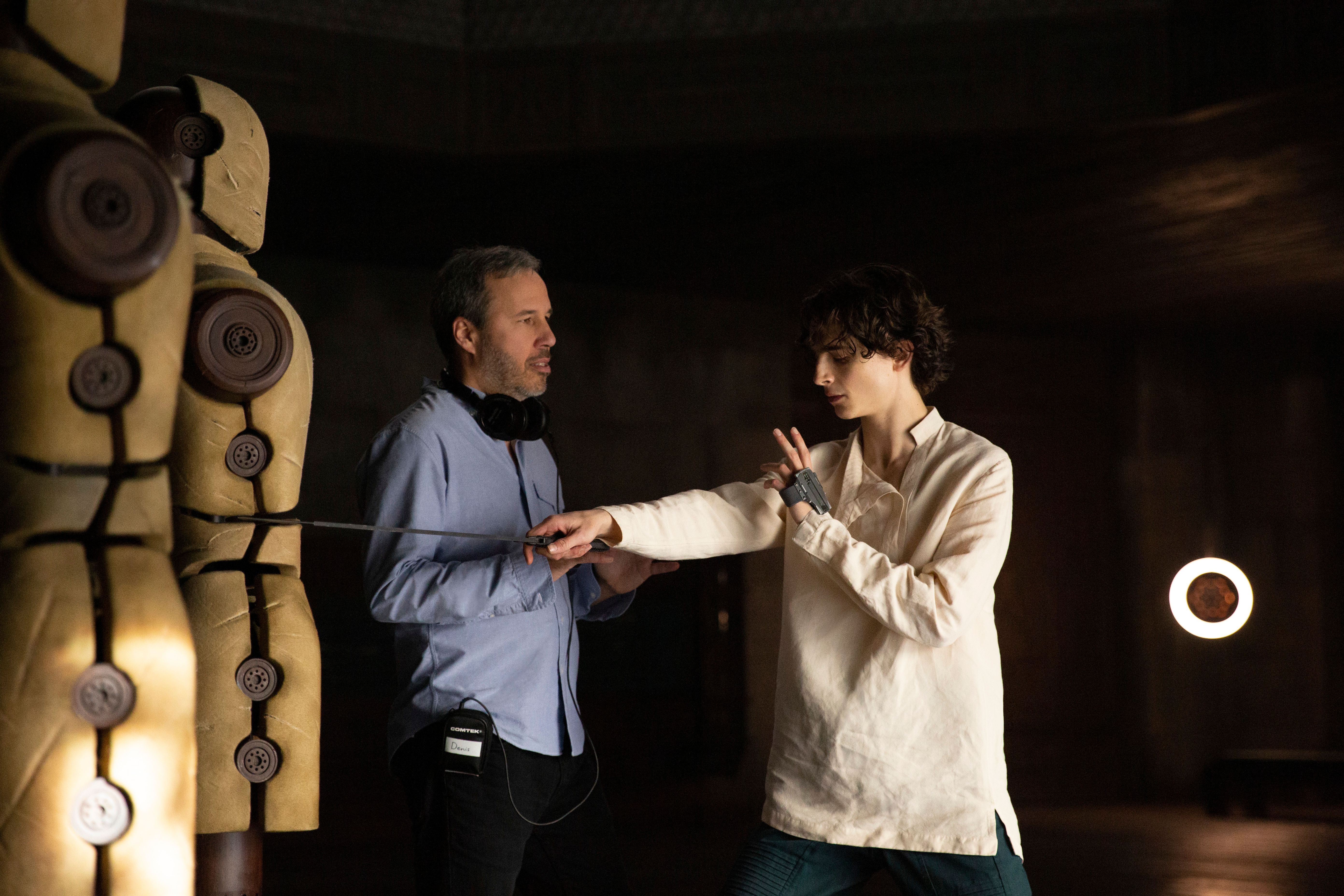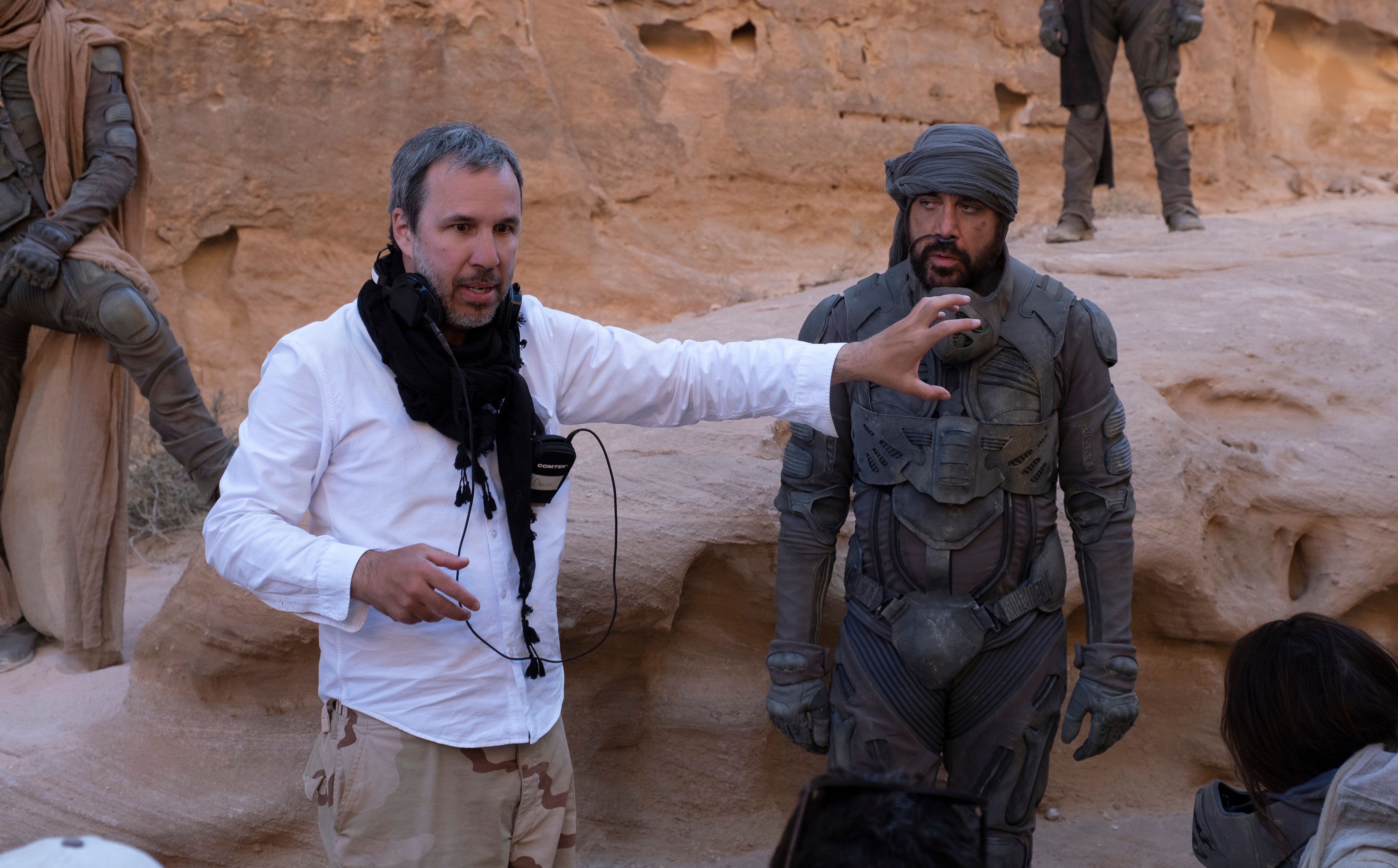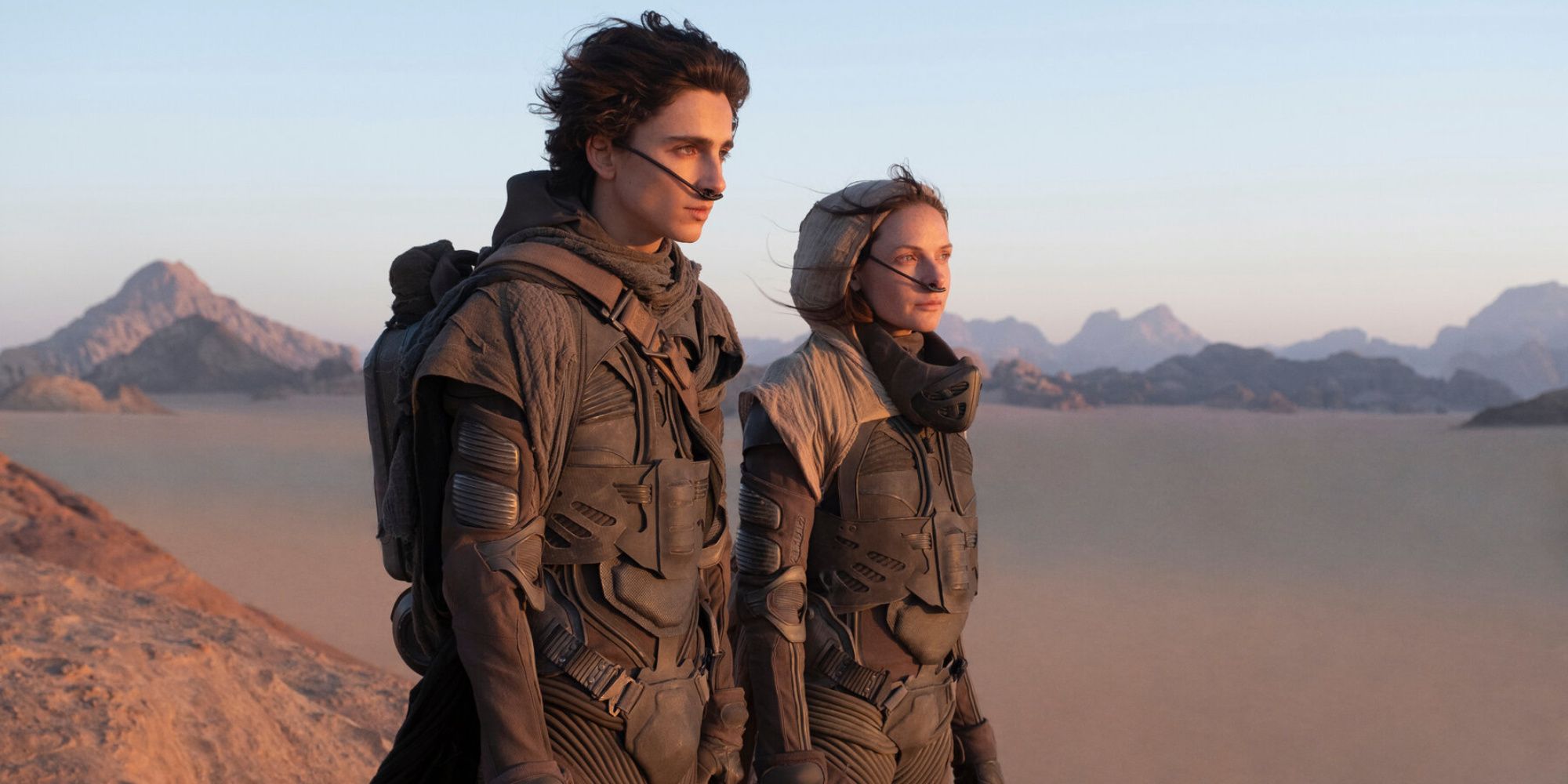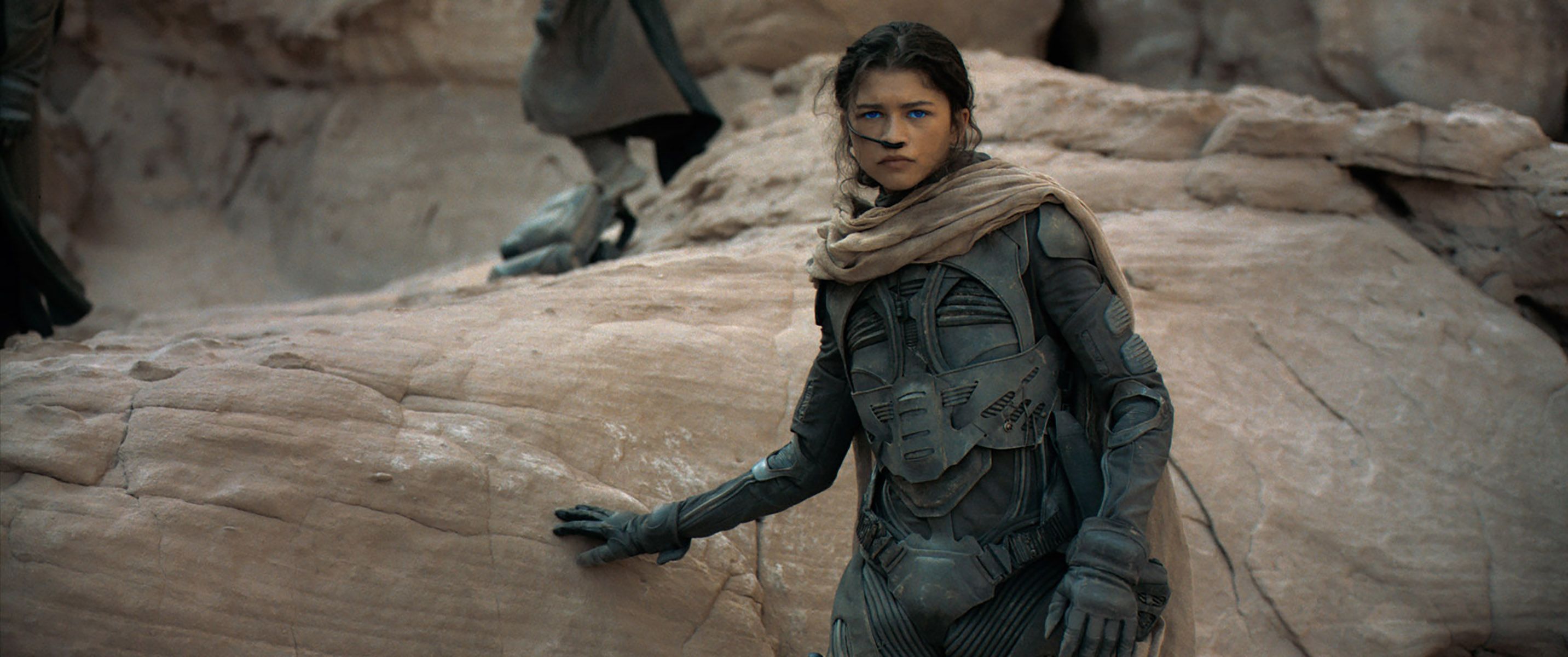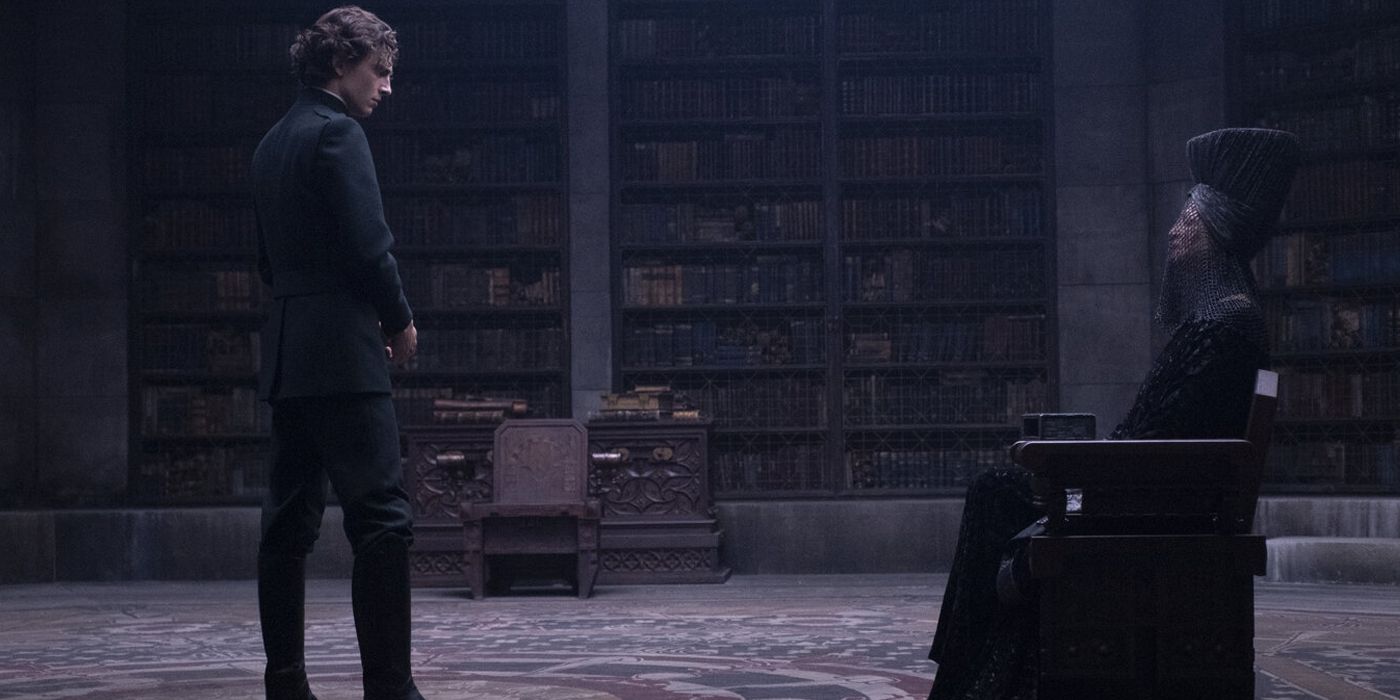While 2021 featured some amazing movies that we’ll all be watching for many years to come, for me there was one film that stood above everything, and that was Denis Villeneuve’s Dune. While Villeneuve has shown his gift behind the camera on his previous films like Arrival, Sicario, and Blade Runner 2049 (just to name a few), what he did on Dune was astounding. Each time I’ve seen the film I’ve felt like I was transported to the other side of the galaxy, getting to witness Paul Atreides' journey as a silent observer. I cannot recommend this film enough.
Last week I got to speak with Villeneuve for the first time about Dune. During the interview, he talked about the ten Oscar nominations, why he’ll never release any of the deleted scenes, if the two hour and thirty-five-minute runtime was a studio requirement, the way he works with cinematographer Greig Fraser, and which of his films changed the most in the editing room and why. In addition, Villeneuve talked about Dune Part II, how the script is done, if he feels more pressure working on the sequel than the first film, if Dune could end up being three movies, and more.
Check out what he had to say below.
COLLIDER: If someone has actually never seen anything that you've directed, what is the first thing you want them watching and why?
DENIS VILLENEUVE: Wow, that's a beautiful question. Hmm. I think it would be Incendies, because it's the first time that I directed a movie where I did feel that I was more in control of the language and that the style of the movie felt like I finally arrived home. So I really feel that this is the movie that is the birth of my adulthood as a filmmaker, I would say. Before it was more experiments, but Incendies was the first time that I made a movie that I was like, I found my ground.
Which of your films actually changed the most in the editing room?
VILLENEUVE: There's a movie that I did just before Incendies called Polytechnique that we had to shuffle with the structure a lot because there were multiple stories, and I decided to remove one of them out of the storyline, so that is a movie that really changed a lot in the editing room.
What is it like for you, because obviously you started your career hoping to make movies, and now you're at a place where I would say that if you decided you wanted to make a movie, someone would come along with the financing and say, "We want to work with you." What is it like reaching that level?
VILLENEUVE: There's definitely a freedom that comes with experience that I'm enjoying a lot right now.
With Dune, a lot of people looked at it as a risk. Now the film has 10 Oscar nominations, $400 million worldwide during a worldwide pandemic. What does it feel like to you to be both critically, commercially, and the entire industry loving the movie?
VILLENEUVE: It's a relief, because when you embark on a journey as a film director, it's always like putting your crew into a boat and telling them that we are going to all discover America, and you hope that you will cross the ocean and that the boat won't sink. There's so many people working hard to make a movie and so many money invested, so of course it's a relief to know that the movie was well received.
I will say that my focus now is like, I'm not having the time to appreciate that success. I'm focusing on the second part right now which brings a lot of anxiety, so I don't have the time to really fully receive and appreciate that.
But I will say about risk, I feel that it's part of the creative journey. It's part of the process. Every movie should be, in its own right, involve risk, a lot of risk. I think that's part of the creative process. I love to put all my chips on the same number. I love to jump without a safety net when I make a movie. It's part of the way, and I think it's probably the same for every filmmaker.
Do you feel actually more pressure working on the sequel than you did making the first film?
VILLENEUVE: I would say it's similar pressure. The first one, it was more to make sure that we will land in the world and that the movie will be accepted. Now it's to make sure that we can close that first book, so it's like there's some premises that are in the first movie that I need to ignore. So yeah, I think I would say there's more pressure with the second one in some ways.
I've heard you talk about wanting to make three movies. I've heard you talk about just doing a sequel. What exactly is in your head right now in terms of the future and you with Dune?
VILLENEUVE: I would say that first of all, I don't like the word sequel for the part two, because it's really like a second part. It's not like if I was doing another story or another moment. It's really the second part of a bigger story, and I'm entirely 100% focused on that second part. I'm not someone that can multitask. I love to completely focus on one project at a time.
Now I could envision a third movie and to make the adaptation of Dune Messiah that will complete Paul Atreides's story that I think would make sense. But each movie, those movies are monsters, and I can only do one at a time. If I survive Dune Part Two, then I might do the Messiah. When I start to think about that, I get tired. It's too much. I need to focus on one project at a time, to be honest. But Part Three will be...I'm making sure that Part Three will be doable.
Is it called Dune: Part Two?
VILLENEUVE: The second one will be called Dune: Part Two. Yes.
I loved your collaboration with Joe Walker in the editing room, and I love talking to directors about editing because it's ultimately where it all comes together, and I've been waiting to ask you this. Did you and Warner Brothers ever discuss what was the maximum runtime that they felt comfortable with? Or was it always you thinking, "I want to make a two hour, 35 minute movie." I'm just curious if there was some sort of conversation.
VILLENEUVE: At the beginning my commitment was to make a movie that was around two hours and 30 minutes or a little bit under because my previous movie, which had been Blade Runner 2049 was close to three hours, and I reassured everybody, saying that I would. But I was feeling the true answer is that myself, I was feeling that it was a story that could hold two hours and 25 to 30 minutes, something like that. I committed to that, and it's fine.
By the way, I don't believe in film length. I believe that each movie has a length that it should have, and that movie has the length, the perfect length for the story we're telling. I made a feature film once that was 70 minutes, and I made another feature film that was three hours. For me it's about the story you are telling. They are all different. But Dune, when we wrote the screenplay, and I was reading the screenplay in my mind, it was like the movie that should last between 2:20 and 2:30. It was the deal I had made with everybody.
But then you have fans like me who would love to see things that maybe didn't make the final cut. So, I just have to ask you, is there ever a chance down the road that you would release deleted scenes, or anything that was cut will never be seen?
VILLENEUVE: No, because when I cut something out of the film, and honestly, there are some scenes, one in particular that it still breaks my heart. There was a little moment with Stilgar in the desert that I'm still mourning, but when I tried to put it back in the film, it deflates the momentum. When a scene is on the cutting floor, it's dead. I don't like deleted scenes. I don't believe in that. What you see on screen is the movie I wanted to make, and it's more pure this way.
One of the many things I love about Matt Reeves's, Batman, is that it's a three-hour movie, and the box office success shows people will watch it. Do you envision Part Two, is that something that could be longer than two and a half hours?
VILLENEUVE: My feeling is that it's going to be similar to the part one. I cannot comment on that yet. The movie's not shot. And I haven't seen, by the way, The Batman yet, and I'm looking forward to see it. I'm about to see it soon. I'm very excited to watch what Matt and Greig did together.
Speaking of Greig Fraser…how much are you guys on set figuring out shots, and how much is storyboarded in advance?
VILLENEUVE: The thing is that in a movie like Dune it depends on the scenes. Most of the movie was storyboarded to give indications for schedule and for the crew to know where we were going. But I always try, more specifically for scenes, the more complex scenes, the emotional, complex scenes with actors, to keep some kind of freedom. So it's a kind of balance where we go with the storyboards, and if ever one of us finds a better shot on the day or a better idea, we just throw the storyboard in the trash.
But it's a movie that was heavy storyboarded. I was feeling that for me there was a way to explore the language and also to bring even closer the screenplay to me. By the way, even when I read the screenplay myself, it's a process to storyboard. It's a new way of writing the movie again. And once the movie's storyboarded, I go back to the screenplay, and I rewrite the screenplay according to the storyboards. It's a way to make the writing move forward.
So I would say this. For me storyboarding is more about writing the movie than shooting it. It's a way to find new ideas, to know the visual language of the movie's more defined, and I find honestly tons of ideas or new ideas as I'm storyboarding. Once it's done, the shooting process can be different from the storyboards, but the ideas are there. I even story screenplay ideas.
I read that you storyboarded Dune when you were 14 years old with a friend. Did any of those ideas from when you were that age end up in the movie?
VILLENEUVE: It was beautiful drawings made by a friend of mine and a few storyboards, but we didn't storyboard the whole movie. It was just a few little moments, and it's true that we did that. And there's one shot that I didn't do in part one, but I will try to introduce in part two, one shot that was storyboarded by him.
I love that. What was the last thing that you and Joe cut out of Dune before you picture locked and why?
VILLENEUVE: I think that it's not something that we cut out. It's something that we added at the end. When Paul and Jamis are fighting, there's a moment where we were hearing the voices of Bene Gesserit voices ghosts giving commands to Paul, like a voice in his subconscious. I wanted to have images there, and I think that there was a construction that Joe had done. I think that he put one of the last image of an end of shiny with blood on the blade at a crucial moment. And when he put that shot there, we knew that the movie was finished.
For fans that cannot wait for Dune: Part Two, of course I would like to ask you, where are you in the scripting process?
VILLENEUVE: The screenplay is finished mostly, but it's always a work in progress. It'll be a work in progress until final cut, but I will say it's solidified. I have a script in my hands. We are in prep right now.
Are you prepping Dune: Part Two right now?
VILLENEUVE: My crew, we are in full prep for the movie. And with the awards seasons, it's tricky. My brain is like, it's like two parts of my brain that don't connect together, and it's not easy to and be in prep. And I'm not complaining.
One of the things that I loved about Dune is the way you used IMAX to enhance the movie, and it looked incredible. Do you have plans on doing more in IMAX?
VILLENEUVE: Definitely. It's a format that, and Greig Fraser and I, we fell in love with this format, and definitely there will be even probably more IMAX footage in this movie. Definitely.

